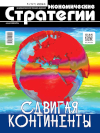Potential GDP growth and social well-being of BRICS countries through the prism of a new distributed ecosystem of payment and settlement solutions
DOI: 10.33917/es-5.197.2024.32-37
The purpose of this article is to find options for solving the problem of trust in various settlement and payment instruments within the emerging new multipolar world, as well as the problem of managing inflation and pricing processes for the purposes of progressive predictable economic development. In analyzing trends, theories and solutions, methods of description, abstraction, analysis and deduction were used.
An analysis of existing practices in terms of instruments applicable for settlements and payments in international trade is conducted. Aspects of their application for transactions and operations with investment capital, which are currently nominated and processed using centralized monetary instruments, are also touched upon. The result of the study is the proposed concept of the UNIT ecosystem, capable of solving the problems of trust and inflation and, as a consequence, the limitations of existing instruments for settlements, payments and operations with investment capital in international trade.
References:
1. Mandelbrot B.B. The fractal geometry of nature. Macmillan, 1983
2. Black F. Business Cycles and Equilibrium. Updated Edition. Wiley, 2010.
3. Michels J., et al. Making sense of Target imbalances. CEPR, 2011, available at: https://cepr.org/voxeu/columns/making-sense-target-imbalances
4. Impossible Trinity. Wikipedia, available at: https://en.wikipedia.org/wiki/Impossible_trinity
5. Benigno P., et al. Cryptocurrencies, Currency Competition, and the Impossible Trinity. NBER Working Paper 26214, 2019, available at: http://www.nber.
org/papers/w26214
6. Nakamoto S. Bitcoin: A Peer-to-Peer Electronic Cash System. 2008, available at: www.bitcoin.org
7. Hayek F.A. A Free-Market Monetary System. Ludwig von Mises Institute, 2008.
8. Pozsar Z. Bretton Woods III. Credit Suisse Economics. 7 March 2022.
9. Gurley J.G., Shaw E.S. Money in a Theory of Finance. Brookings, 1960.
10. Banking and Currency: Hearings Before the Committee on Banking and Currency, United States Senate. Sixty-Third Congress, First Session, on H.R.
7837 (S. 2639) in Three Volumes (1913), available at: https://fraser.stlouisfed.org/files/docs/historical/congressional/1913sen_bankcurr_v1.pdf














